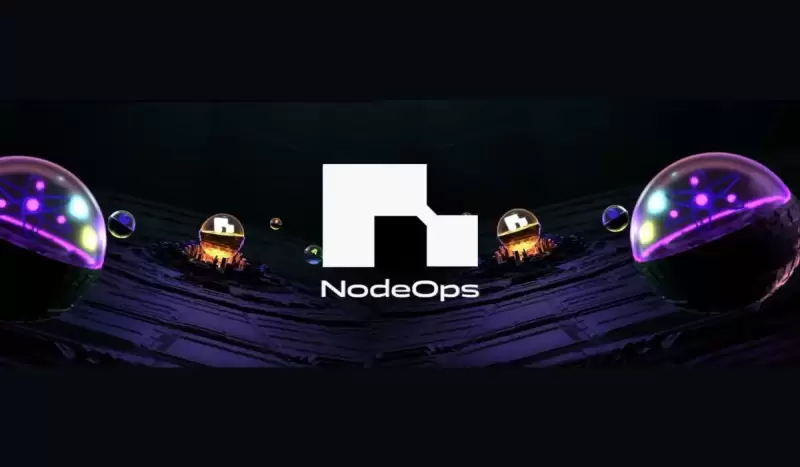 |
|
 |
|
 |
|
 |
|
 |
|
 |
|
 |
|
 |
|
 |
|
 |
|
 |
|
 |
|
 |
|
 |
|
 |
|
Cryptocurrency News Articles
The outlook surrounding the use of new technologies has shifted in Washington
Apr 02, 2025 at 11:13 pm
Tesla CEO and presidential adviser Elon Musk's proposition to incorporate blockchain technology into the US Treasury has placed blockchain and its use
Elon Musk's suggestion to integrate blockchain technology into the US Treasury has sparked interesting discussion.
While the idea of using blockchain for government finance has been explored, realizing such a vision on the scale envisioned by Musk presents several difficulties.
One concern is the sheer magnitude of government operations. The US government handles thousands of transactions daily across various departments.
To succeed at this scale, provable security will be essential as will the speed and efficiency of modern ZK-rollups, which can handle hundreds of millions of transactions daily.
Unfortunately, this integration comes with its own set of hurdles, particularly when considering public services, which tend to operate in silos.
A broader point is that the administrative aspect of this transition shouldn't be underestimated. Shifting from archaic legacy systems to the more modern infrastructure of blockchain requires more than just software updates; it demands an entire reprogramming of the workforce.
Government employees are accustomed to outdated systems, and the learning curve for new technologies may be steeper than anticipated.
Furthermore, current government databases are a labyrinth of poorly documented, indecipherable data. Extracting and migrating this data to a blockchain infrastructure is a task that will require significant investment.
Despite its elegance, blockchain wasn't built to contend with such inefficiency.
Despite its potential for handling complex, distributed environments, the difficulties present in the system could make the transition more complicated than it seems.
Another factor to highlight is the transparency of federal spending.
The strength of blockchain lies in its ability to provide permanent, transparent records, allowing citizens to track how public funds are allocated and spent.
Musk's premise could foster an unprecedented level of accountability, making transactions, every delegation of power and every resource distribution visible to the public in real-time.
However, the integration of classified information or personal identification data into a public blockchain could have dangerous implications.
To mitigate this, we could envision a hybrid architecture.
Sensitive government data is channeled into private "Validium" chains, which are interconnected with the main, public ZK-rollup chain.
This setup would allow for efficient processing of high-volume transactions on the ZK-rollup and secure storage of confidential data on the Validium chains, ensuring that only individuals with the appropriate authorization or from specific departments could access the required information.
In essence, Musk's offer to help the new administration could lead to a more efficient and accountable system.
This initiative is driven by the longstanding criticism of wasted spending and resource misallocation at the government level. There is also a possibility of strengthening democratic processes by holding public officials more accountable.
A decentralized authority has the broader impact of empowering citizens through real-time access to information and increasing their participation in the political system.
This vision is futuristic and has the potential to revolutionize governance.
However, it also raises a profound question. Could technology really be the solution to the challenges of human governance, or are we on the verge of a fundamental shift in how we understand privacy and accountable authority in the age of advanced technologies?
As we delve deeper into the fabric of governance, we must carefully consider the role of blockchain and what it could ultimately mean for the future of society as a whole. Only through collective wisdom and a shared vision can we navigate this new frontier of technological integration in government.
Disclaimer:info@kdj.com
The information provided is not trading advice. kdj.com does not assume any responsibility for any investments made based on the information provided in this article. Cryptocurrencies are highly volatile and it is highly recommended that you invest with caution after thorough research!
If you believe that the content used on this website infringes your copyright, please contact us immediately (info@kdj.com) and we will delete it promptly.
-

-

-

-

-

-

- Market Greed Turns to Bloodbath as Nearly $300M Worth of Perpetual Futures Positions Get Liquidated
- Apr 05, 2025 at 06:10 pm
- Just 24 hours ago, the crypto market seemed like a prosperous place after days, if not weeks, of uncertainty. Even the popular Fear & Greed indicator made it back into greed mode and reached a reading of 44. However, fast forward to today, and all the optimism from the beginning of the week seems to have been erased.
-

-

- Last week, with tariffs looming and macro uncertainty unresolved, the move upward felt more like wishful thinking than fundamental confidence.
- Apr 05, 2025 at 06:05 pm
- This editorial is from last week's edition of the Week in Review newsletter. Subscribe to the weekly newsletter to get the editorial the second it's finished.
-
























































